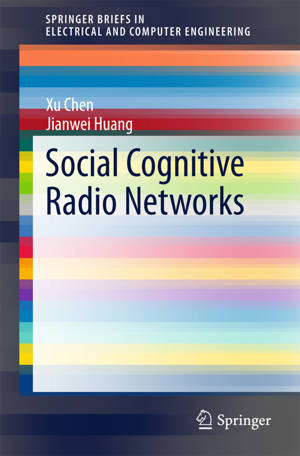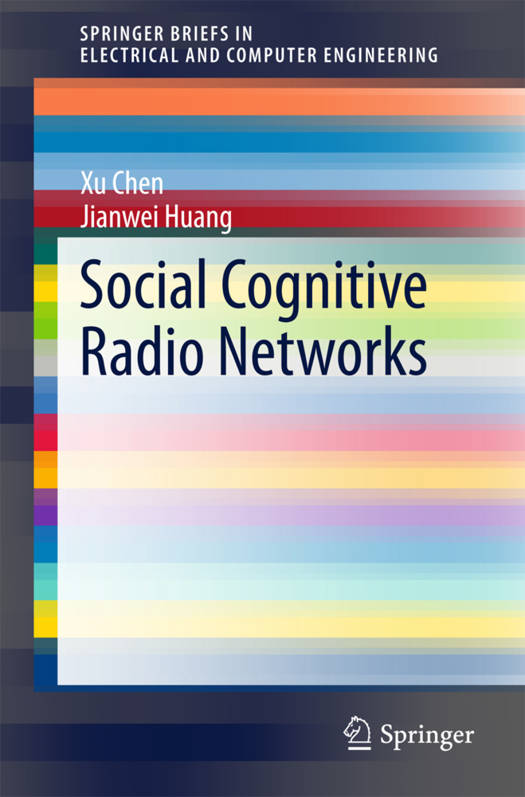
- Afhalen na 1 uur in een winkel met voorraad
- Gratis thuislevering in België vanaf € 30
- Ruim aanbod met 7 miljoen producten
- Afhalen na 1 uur in een winkel met voorraad
- Gratis thuislevering in België vanaf € 30
- Ruim aanbod met 7 miljoen producten
Zoeken
Omschrijving
This brief presents research results on social cognitive radio networks, a transformational and innovative networking paradigm that promotes the nexus between social interactions and cognitive radio networks. Along with a review of the research literature, the text examines the key motivation and challenges of social cognitive radio network design. Three socially inspired distributed spectrum sharing mechanisms are introduced: adaptive channel recommendation mechanism, imitation-based social spectrum sharing mechanism, and evolutionarily stable spectrum access mechanism. The brief concludes with a discussion of future research directions which ascertains that exploiting social interactions for distributed spectrum sharing will advance the state-of-the-art of cognitive radio network design, spur a new line of thinking for future wireless networks, and enable novel wireless service and applications.
Specificaties
Betrokkenen
- Auteur(s):
- Uitgeverij:
Inhoud
- Aantal bladzijden:
- 83
- Taal:
- Engels
- Reeks:
Eigenschappen
- Productcode (EAN):
- 9783319152141
- Verschijningsdatum:
- 28/01/2015
- Uitvoering:
- Paperback
- Formaat:
- Trade paperback (VS)
- Afmetingen:
- 156 mm x 234 mm
- Gewicht:
- 145 g

Alleen bij Standaard Boekhandel
+ 105 punten op je klantenkaart van Standaard Boekhandel
Beoordelingen
We publiceren alleen reviews die voldoen aan de voorwaarden voor reviews. Bekijk onze voorwaarden voor reviews.











